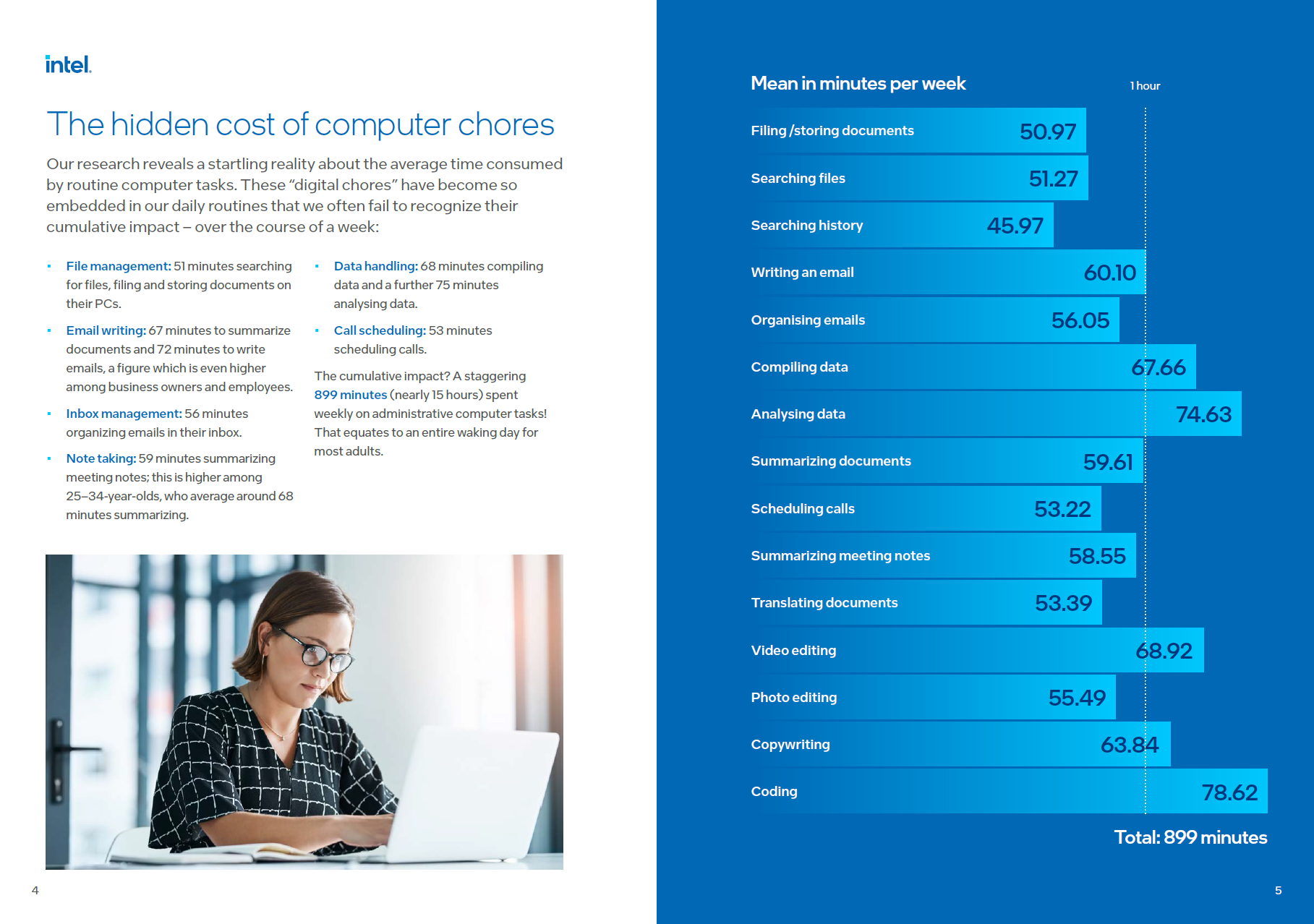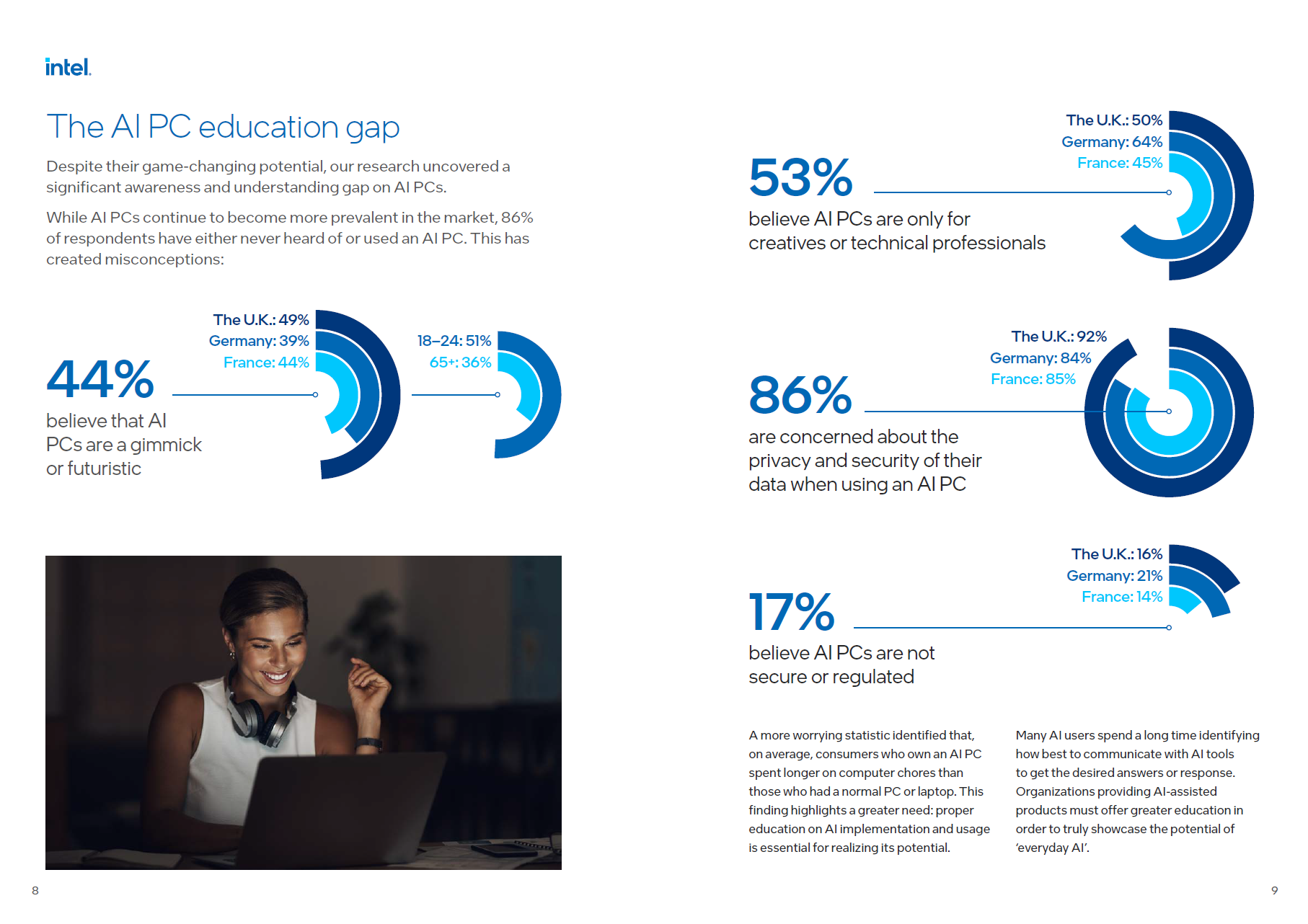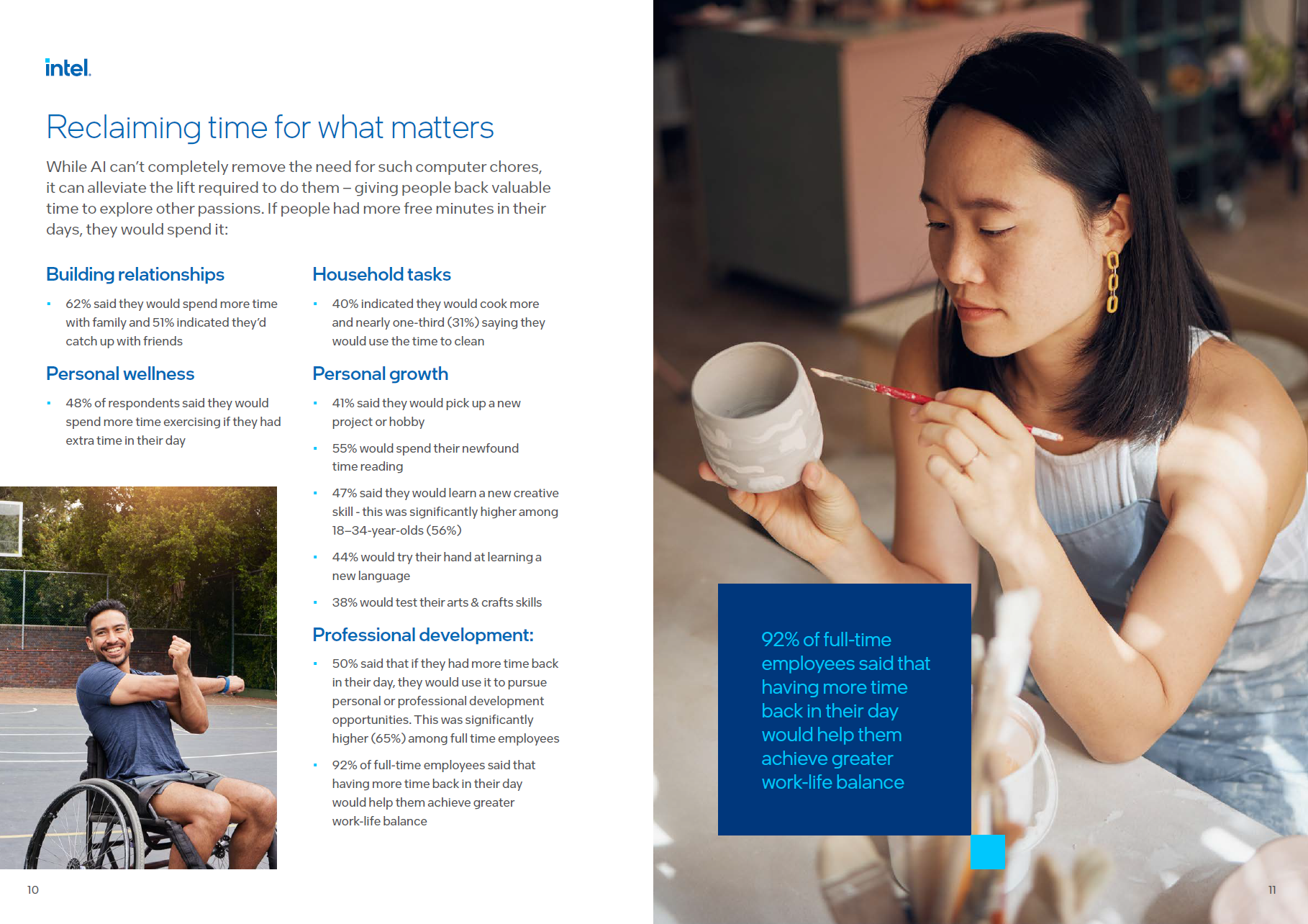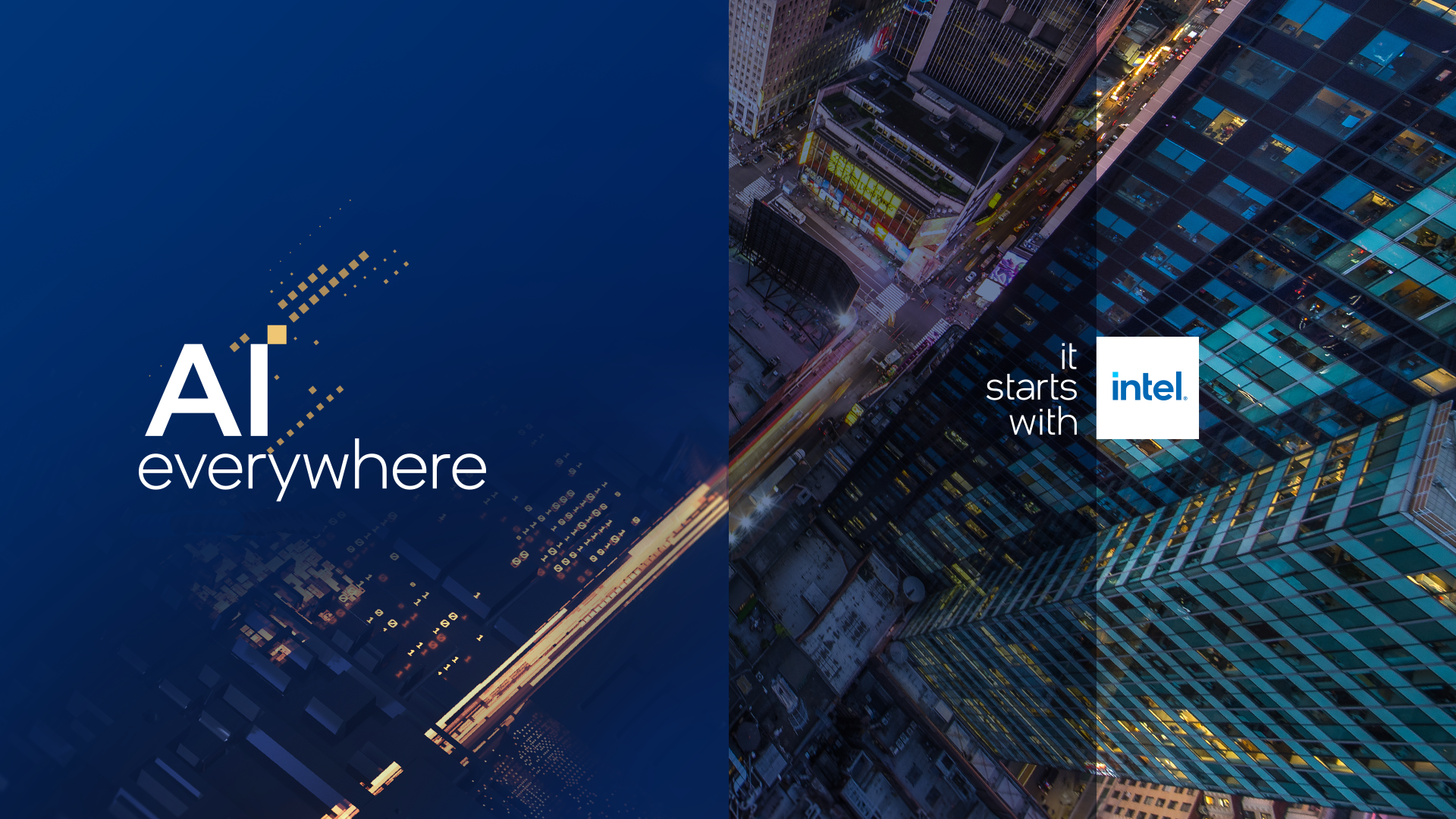What is an AI PC, and do I need one? That’s a question I’ve been asked quite a lot in the past year, along with “who exactly do you think you are” and “why don’t you get a haircut”.
Anyway, it’s a complicated question to answer. But if you’ve been internally debating the merits of AI PCs, Intel has prepared a document just for you, entitled “Reclaim your day: The impact of AI PCs on productivity” (PDF warning).
It’s based on a recently commissioned study by the chip giant in which 6,000 people aged 18 and over across Germany, the UK, and France were surveyed on their computer usage habits, awareness of AI PCs, and how they’d use the time they’d gain if they bought in to the wonderful world of AI-enhanced personal computing. And believe it or not, it’s rather positive towards the whole concept.
“AI PCs can save people hours weekly through built-in artificial intelligence with features like accelerated task processing, enhanced privacy, and adaptive learning” says the report, and it’s got some figures to back it up. According to the study, the “hidden cost of computer chores” stacks up pretty quickly, with 74.63 minutes a week on average lost to “analysing data”.
Compiling data was said to take up just over an hour of participants time, while 78.62 minutes were lost on average coding. That seems high for a sample size of 6,000, but then it’d only take a reasonable number of full-time coders thrown into the mix to bump that average up, so I can buy it.

The good news is, AI PCs are great at this sort of stuff, at least according to Intel’s study. Under the heading “quantifying the AI advantage”, productivity gain is said to be more than 240 minutes saved weekly on routine tasks, which is pointed out to be “longer than the average length of a flight from London to Malta”. Okay then.
There’s some odd methodology going on here in places, too. 44% of French participants are said to believe that AI PCs are “a gimmick or futuristic”, which seem like wildly different terms to use in one question.
Another interesting stat is that 86% of participants said they were concerned about privacy and security of their data when using an AI PC, although only 17% believe that AI PCs are not secure or regulated.
Again, that second metric seems to be throwing in two (this time slightly different) terms into the question. After all, something can be viewed as secure and not regulated, or indeed, regulated but not secure.
The report also identifies an “education gap” that it says shows a greater need for users to understand AI implementation and how to use it.

“Many AI users spend a long time identifying how best to communicate with AI tools to get the desired answers or response. Organisations providing AI-assisted products must offer greater education in order to truly showcase the potential of ‘everyday AI’.”
So what could we do with all this time saved by correctly using an AI PC? Well, the study asked the participants, and they came up with some expected responses. 62% said they would spend more time with family, 51% said they’d catch up with friends, and 40% indicated they would cook more.
Me personally, I’d take more windy walks on the beach. In all seriousness though, it’s of no real surprise that, when asking people what they’d do if they had more free time, they come up with a variety of ideas. It does seem to be missing the point a touch, however.

As I’ve pointed out previously in regards to AI avatars and other, time-saving implementations of AI, the problem here is not so much that AI isn’t useful, more that it’s in danger of making humans less so. And that’s a concerning thing. After all, any of us with an office job can look at the list of “computer chores” here identified by the study as being much improved, and see a fair number of the roles they’re employed to perform.
Email writing. Filing documents. Scheduling calls. Video editing. Photo editing. Copywriting. Analysing data. It’s wonderful to imagine that an AI PC can help with these mundane tasks, right up until the moment that you realise that if an AI can do it well enough to satisfy the demand, there might not be much of a reason left to employ you.
And as to whether employers would simply let you wander off while AI did your work for you, so you could enjoy your free time? Forgive me, but I really don’t think so.

Best CPU for gaming: The top chips from Intel and AMD.
Best gaming motherboard: The right boards.
Best graphics card: Your perfect pixel-pusher awaits.
Best SSD for gaming: Get into the game ahead of the rest.
Still, 92% of full-time employees said that having more time back in their day would help them achieve greater work life balance, which probably comes as no surprise to those that know where bears go to the bathroom and which religion the Pope practices.
With 41% of respondents saying they would consider an AI PC for their next upgrade, though, it looks like these concerns won’t necessarily hold back many consumers from buying an AI PC. That, and the fact that major manufacturers like AMD and, err, Intel, have launched laptop chips that feature an NPU for AI processing by default.
Oh, and AI-powered Copilot Windows integration is very much a thing, although it may be on the cusp of simply being called Windows Intelligence instead.
So one way or another, your next laptop purchase is likely to be an AI PC regardless. As a result, this is all a bit elementary really, but—and you can call me cynical, scaremongering, or simply a negative ninny if you like—I’ve still yet to see why AI PCs are a good thing for the future of working. And it’ll take more than a study commissioned by a manufacturer with this much skin in the game to convince me otherwise.











